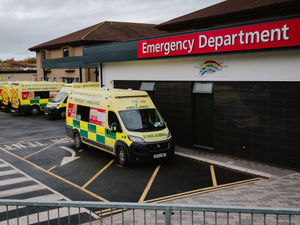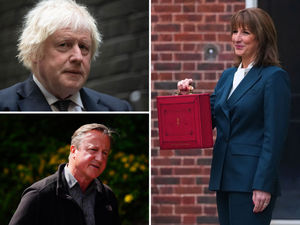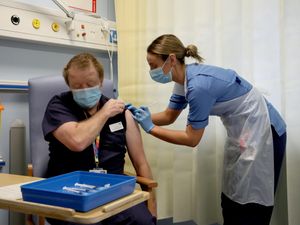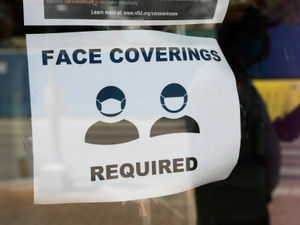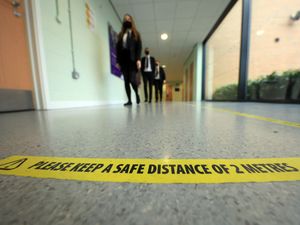Care home group considering if staff without vaccine can work with residents
Around two thirds of social care staff have received a coronavirus vaccine, the Government said on Monday.
One of the UK’s largest care home providers has said it is considering whether staff who have refused a vaccine for non-medical reasons can continue in roles where they are in contact with residents.
Barchester Healthcare, which runs more than 200 care homes, said it is considering an option where staff make themselves “unavailable for work” in resident/patient-facing roles “by reason of their own decision” on not getting vaccinated.
The group had previously announced that it would not hire new staff if they had not had the vaccine for non-medical reasons, citing the vulnerability of its residents and patients.
The Government has encouraged everyone who is called on to get the vaccine but said it is not mandatory.
Barchester said the recent option has been communicated to staff and no decision has been made.
A spokesman said: “Our long-term ambition is that all patient and resident-facing staff will have the Covid-19 vaccine in order to protect both themselves and the vulnerable residents and patients in our care, and we have very recently communicated to our teams that one option under consideration is that staff who refuse the vaccine on non-medical grounds will, by reason of their own decision, make themselves unavailable for work.
“This is part of an ongoing dialogue we are having, we are constantly reviewing this as more information is available, and are very aware of concerns around possible discrimination which is in no way our intention.
“We are doing everything possible to ensure fairness whilst also delivering on our duty to protect our residents, patients and staff.”
There are no official figures published on how many health and social care staff have been vaccinated, but the Government said on Monday that around two thirds of the social care workforce had been jabbed.
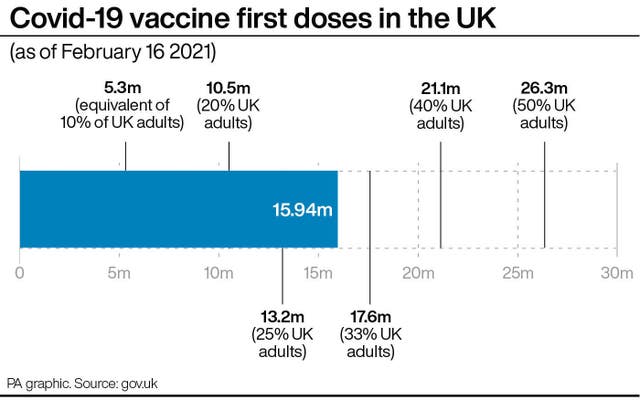
As of February 15, 77% of Barchester staff had received at least one dose of a coronavirus vaccine and the group said “many more” are awaiting a jab as soon as they can after testing positive for Covid-19.
Just under 6% have not yet decided to take the vaccine, the group added.
It said it is committed to making its homes as safe as possible and is working to ensure staff are aware of the facts around vaccination so they can alleviate any concerns and understand reasons for doubt.
Downing Street has previously said that forcing an employee to have a coronavirus vaccine would be “discriminatory”.
On Tuesday the vaccines minister Nadhim Zahawi declined to clarify whether employers can legally require staff to disclose whether they have received a coronavirus vaccine.
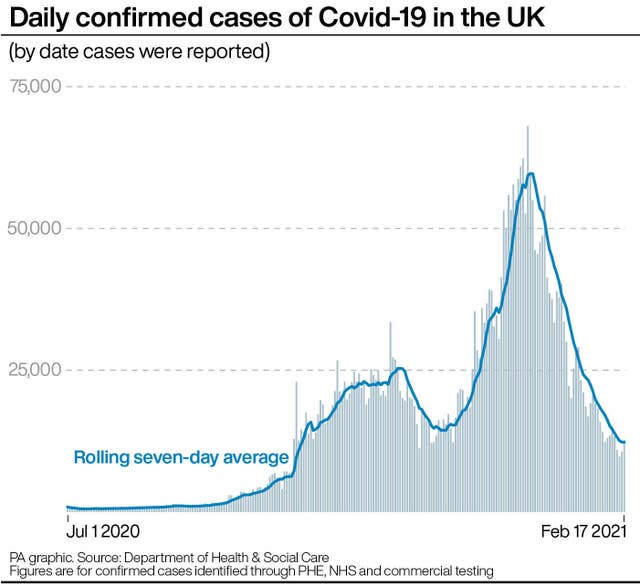
Instead, he told BBC Radio 4’s Today programme: “The vaccination is not mandatory.
“Employers have been talking to us, they are concerned about their duty of care for the residents, the elderly residents, especially if the virus mutates.
“At the moment, the dominant virus in the UK, the vaccines work well against the dominant virus.”
Gavin Edwards, senior national officer of trade union Unison, said: “Unions want to work with employers to ensure concerned staff are reassured, their questions answered, and the correct information supplied in a simple, straightforward way.
“It’s in all our interests that as many care workers as possible have the vaccine. But this should be through encouragement and persuasion, not threats and coercion.”
A Department of Health and Social Care spokesperson said: “Vaccines will save thousands of lives and we are urging everyone to accept the offer of a vaccine, when it comes.
“Safe vaccines offer the best form of protection against the virus and getting the jab will help protect people from becoming seriously ill from Covid, ensuring they can continue to be there for their family, friends and the people they care for.
“We know some groups feel more hesitant about getting a jab, and have launched an uptake plan which is specifically designed to increase uptake of the vaccine and help make sure everyone is protected equally. This includes working hand-in-hand with local leaders in communities with lower take-up, utilising their insight to maximise vaccination numbers and saving thousands of lives.”

